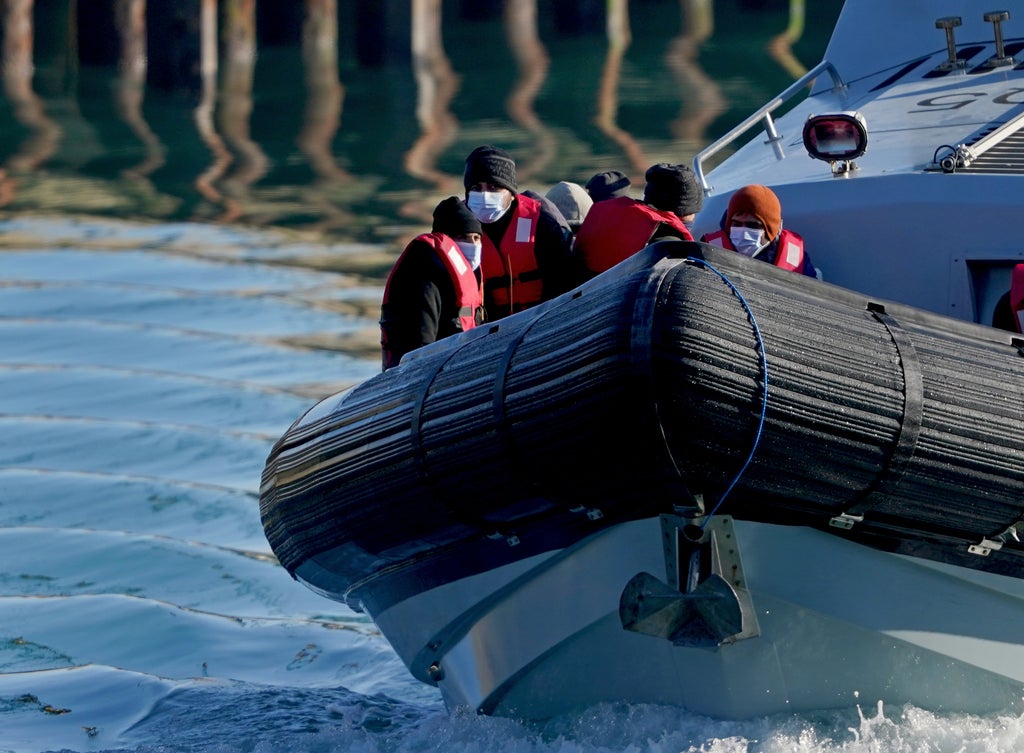
There is “no spare capacity” of navy vessels to tackle the number of migrant crossings in the Channel a former patrol boat commander has warned.
Tom Sharpe told MPs the solution to curbing the crisis was “not at sea” after the Prime Minister signed off plans for the military to take over command of the operation from Border Force
Home Secretary Priti Patel told the Commons last week she had “commissioned the MoD (Ministry of Defence) as a crucial operational partner to protect our Channel against illegal migration”.
Speaking to the Commons Defence Committee on Wednesday, ex-navy commander Mr Sharpe said: “We have to acknowledge right at the start, in terms of context, about where the solution to this lies, and it’s not at sea.”
Asked what resources the Royal Navy has that could tackle migrant crossings, he said: “If you fill the Channel with ships you could make this problem worse because you’re now making the crossing safer, and therefore more attractive.
The person in the planning board ... is going to be hoping desperately that naval vessels aren't requisitioned for this task because they're all in use on other things
“In terms of what the navy’s got right now, as I say they could use anything, but there is no fat, there is no spare capacity.
“The person in the planning board … is going to be hoping desperately that naval vessels aren’t requisitioned for this task because they’re all in use on other things.”
Vice Admiral Sir Charles Montgomery, a former Second Sea Lord and director general of Border Force between 2013 to 2017, said the navy had a “far greater range” of its own assets and “wider defence assets” to call on which will be “very useful”, but added that those resources “could have been available to Border Force if it was leading the operation”.
“Clearly a judgment has been made that this is … about the leadership of the operation. And the Government have reached a judgment that the navy will be in a better place to lead this operation, better than Border Force or indeed any of the other operational arms that the Home Office has to call on,” he said.
The plans were called into question by some critics after little information was provided on how it would work and questions for more detail went unanswered.
John Spellar, acting committee chairman for the session, said it was “unfortunate that the Ministry of Defence has declined to provide either a minister or an official or a senior navy officer” to answer questions on what has been named Operation Isotrope.
The plans have been “in train” for some time, Mr Sharpe said, but suggested the decision to put the navy in charge was a bigger role than previously anticipated.
He told MPs he thought the navy could offer the operation four things “really, very well”: command and control to co-ordinate the large number of organisations involved; intelligence to “better predict” when crossings are likely to happen; maritime surveillance which he described as “navy 101”; and “allocating resources efficiently”.
He suggested there was technology available that could “saturate” the Channel with better surveillance, describing nodes that have radar, thermal imaging and optical cameras and intercept cell phone use which could cost about £3 million to buy 10 to cover the stretch of water.
With that in place “you’re not playing ‘whac-a-mole’ any more, to use that expression, which is what I think is happening now”, he said, suggesting using such technology could help with “efficiently allocating resources” if crossings were under way.
But when asked what navy vessels would actually be able to do when faced with intercepting a boat, and whether turning boats back towards France would be possible, he said: “I would be happy if the expression of pushback was never used again.
“I cannot conceive a situation where you’re physically turning these ships back that’s either legal, or perhaps more importantly, safe.”







